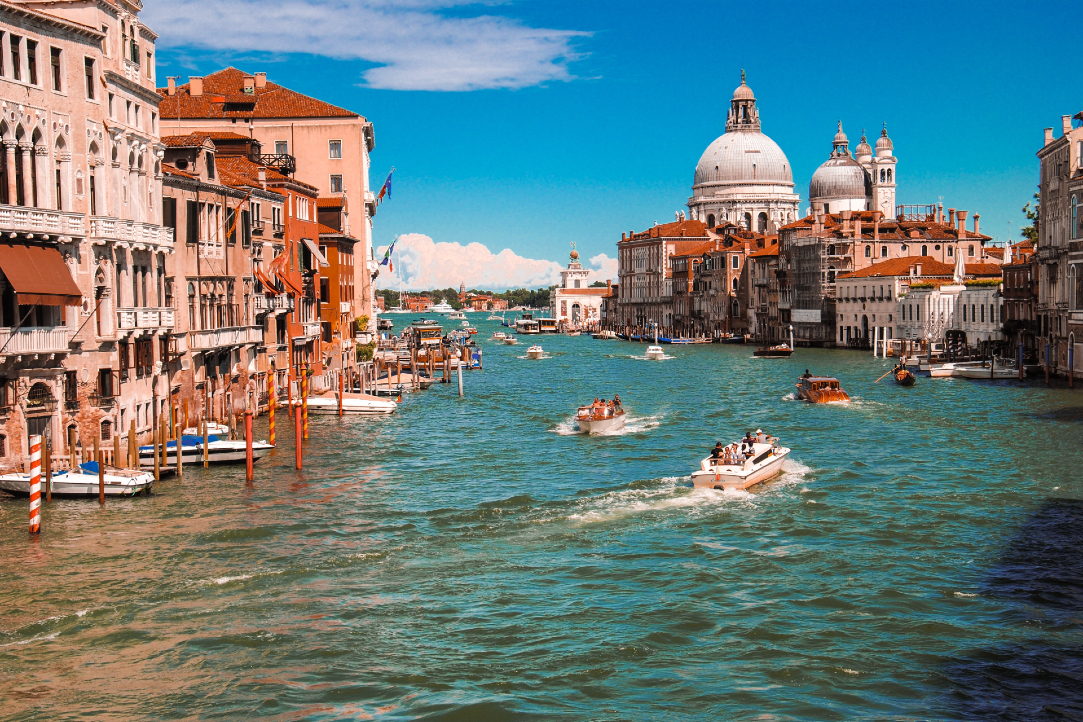‘I Have Always Loved Italy’
Vladislava Galkina is a third-year student of the Bachelor's programme 'Philology' at HSE University-St Petersburg who went to Italy under the academic mobility programme in the third and fourth semesters. In her interview, Vlada talks about participating in the mobility programme, finding accommodation in Italy, and attitudes to Russians abroad.

— Some people think that to participate in the mobility programme, you have to be top of the class, take part in various projects and competitions, etc. Is this the case?
— It is a myth. I am approximately in the middle of the rating in my cohort. I think extracurricular activities play a significant role, but there is nothing to be afraid of. When I applied to the mobility programme, I submitted documents confirming my participation in several projects at HSE University, and it was enough for me to be selected.
— Was it a difficult decision to apply to go to a foreign country for a long time by yourself?
— To be honest, I didn't even question it. I had to move a lot when I was a child, so now I can quickly adapt to a new city and make new friends. Of course, I was a little sad to leave. But that isn't new to me, plus we can always call each other to talk. I keep in touch with my parents and friends. We regularly text each other, have video calls, exchange photos and share news.
— Tell us more about your university and educational programme in Milan.
— Under the academic mobility programme, I went to Cattolica del Sacro Cuore in Milan to study World Literature and Linguistics. Though it is a master's programme, I chose it because it is very similar to what we study in the bachelor's programme at HSE University. I am interested in foreign literature—my term papers were devoted to the works of Shakespeare and Daphne du Maurier. In my opinion, there is not enough English practice at HSE University, but now I have an opportunity to speak and write in English more because all of the subjects here are taught in English.
— What did you look for when choosing a university?
— In addition to what I mentioned earlier, I have to mention that there are courses on fashion history at Cattolica del Sacro Cuore. For me, this is especially relevant as I have been simultaneously working as a fashion journalist for several years—reviewing designers' shows, compiling fashion selections, and writing promotional articles for clothing and accessory brands.
— How hard was it to collect the documents and get a visa? What difficulties did you face?
— Getting a visa was the easiest thing. I received the completed document just five days after applying. In general, collecting the documents did not take a lot of time. The study office gave me a list of what I needed to submit. Of course, a lot depends on the university you're going to, but as you can see, I managed to resolve all the legal issues and I'm here! The really hard thing was renting an apartment. Unfortunately, my university in Milan does not provide international students with a dormitory. Being in St Petersburg, it was almost impossible to find a suitable option for the price and location. My advice for those in the same situation is to find other HSE University students who are going to the same university. It will be easier to find accommodation together at the beginning—perhaps someone has acquaintances or relatives who can help to rent an apartment. When you arrive, start looking for an apartment or a room on the local website and go to have a look at the options yourself.
— Is it possible to get a scholarship or should students have their own money for flights, accommodation, food and other expenses?
— To be honest, I did not try to figure out anything about a scholarship. Perhaps it is possible, but it is better to have your own money—you feel more comfortable and free.
— Have you managed to walk around Milan yet? What has impressed you the most?
— I went on an excursion with some other HSE University students. I have managed to see the main attractions—Pinacoteca di Brera, Galleria Vittorio Emanuele II, and the Milan Cathedral. I have always loved Italy and I had visited many cities before—for example, Rome and Florence. I have always admired and been impressed by Italian architecture. This is why Milan appealed to me so much. We walk a lot and visit various cafes to have authentic Italian pasta and pizza.
— Many people worry about attitudes to Russians abroad. Have you faced any such problems?
— I have been here for almost two months and never faced a negative attitude towards myself because of my nationality. Quite the opposite; everyone is very friendly, smiling and amiable. I think it is related to the fact that Milan is a huge multinational city with a great number of foreigners. At the university, I have made friends with students from Germany. We often spend time together—visiting museums and exhibitions, and going to the local suburbs at the weekend.
Text by Elizaveta Lomonosova, 3rd-year student of the Bachelor's programme 'Philology'

